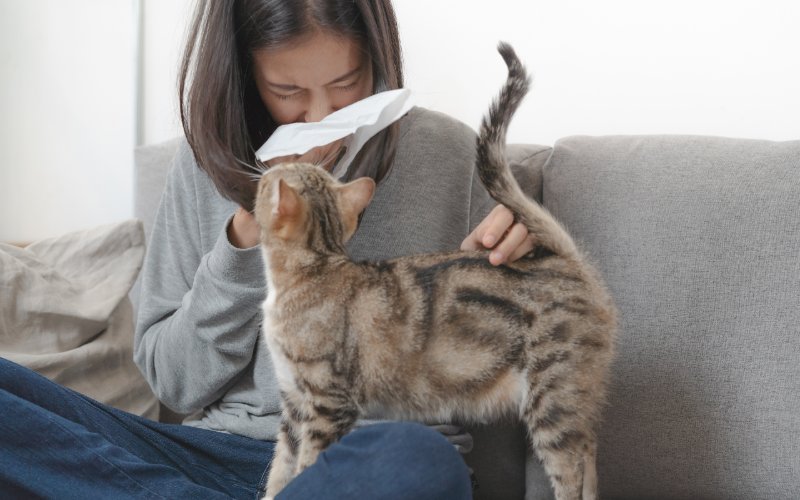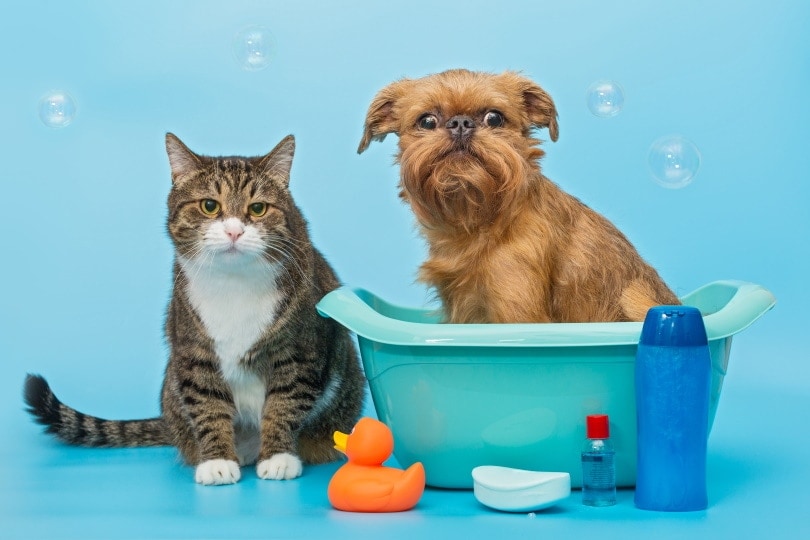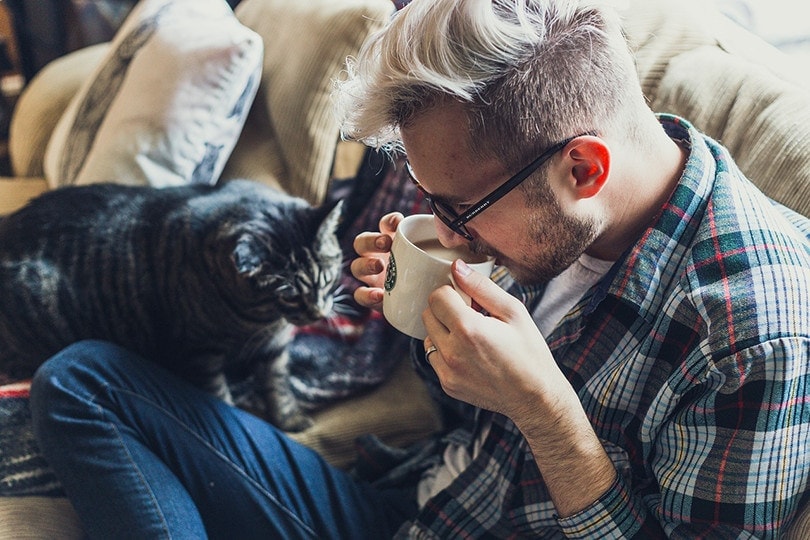Why Is My Kitten Sneezing? 8 Vet-Reviewed Likely Reasons
Updated on
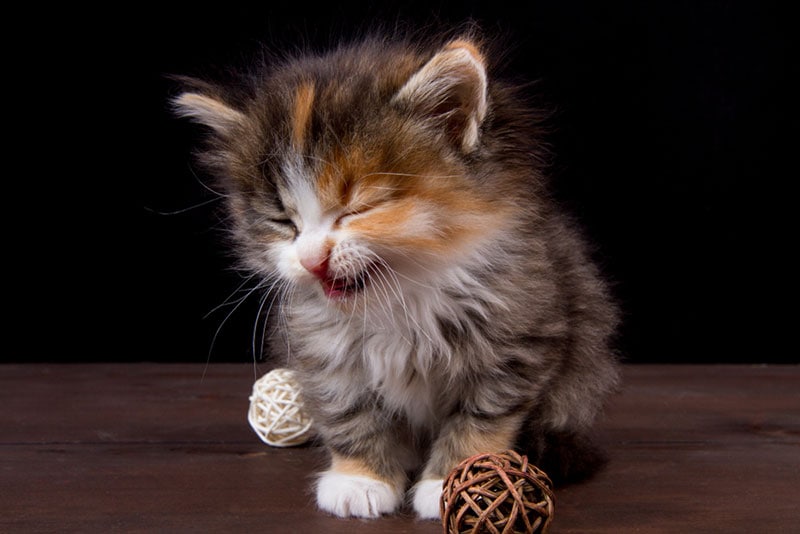
Gesundheit! Is your kitty acting more sneezy than usual? Sneezing is a normal body function for cats and, most of the time, doesn’t mean anything. But it can be a problem when your cat starts sneezing and can’t stop. Sometimes, this can mean a serious medical issue.
This post lists eight potential reasons your cat is sneezing and what you should do about it.
The 8 Possible Reasons Kitten Is Sneezing
1. Upper Respiratory Infection
The most common illness related to sneezing is an upper respiratory infection. Several upper respiratory infections exist, and the symptoms can vary based on your cat’s condition. Some common respiratory infections in cats include:
- Feline Herpes Virus
- Feline Calicivirus
- Feline Leukemia
- Chlamydia
- Bordetella
- Mycoplasma
The best prevention is to keep your cat’s vaccines up to date. But if your cat already has an infection, swift treatment is crucial since a cat is more likely to develop other complications from a weakened immune system.
Bacterial infections can be treated with antibiotics, which your vet may prescribe depending on how severe the infection is, how long it has been present and the overall age and health status of your kitten.
2. Inhaled Irritants
Like humans, cats sneeze to cleanse their respiratory system of unwanted irritants. The most common household irritants include:
- Dust
- Pollen
- Smoke
- Perfume
- Cleaning chemicals
- Scented candles
- Mold
- Pest sprays
Finding the culprit is a process of elimination, so look for patterns when your cat sneezes. Does your cat sneeze when you apply perfume? After using the litter box? Cleaning the house? Slowly remove these irritants until you’ve found the problem.
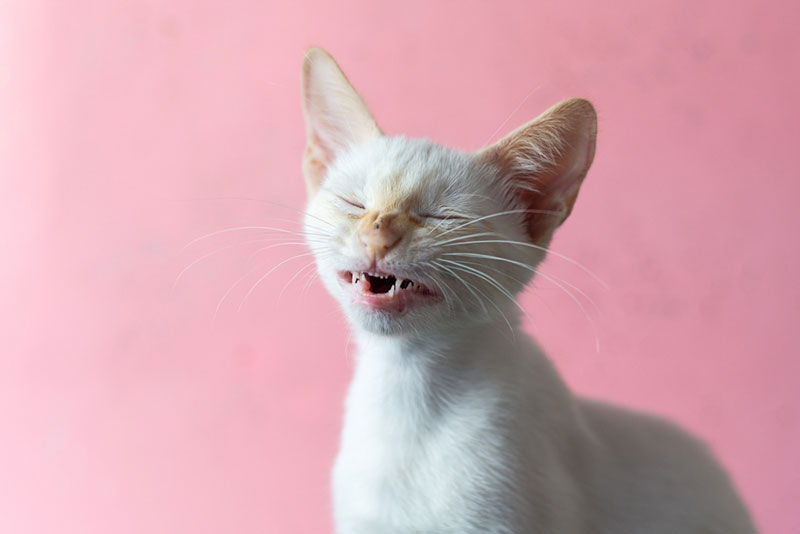
3. Dental Disease
Dental disease in cats is pretty common—about 50% to 90% of cats struggle with some form of the disease 1. Many don’t know that a rotting tooth can send drainage to the nasal cavity, causing a sneezy cat.
Dental disease can be life-threatening if left untreated. Routine dental checks on your cat are best at preventing dental disease, but if your cat already has an infected tooth, the tooth (or teeth) will have to be removed, which can be pricey.
4. Nasal Cancer
Tumors can grow within the nasal cavity, making it difficult for your cat to remove debris. Nasal tumors can have drainage, triggering your cat to sneeze 2.
Unfortunately, because nasal tumors are hidden, the signs don’t surface until the cancer is advanced. Common signs of nasal cancer include:
- Excessive sneezing
- Loud snoring
- Bloody noses
- Pawing at the face
- Seizures
- Facial deformity
Usually, your veterinarian will start with a physical assessment and blood work to see how advanced the cancer is and if any breathing passages are being blocked. In addition, your vet may recommend an endoscopy to better assess your cat’s situation.
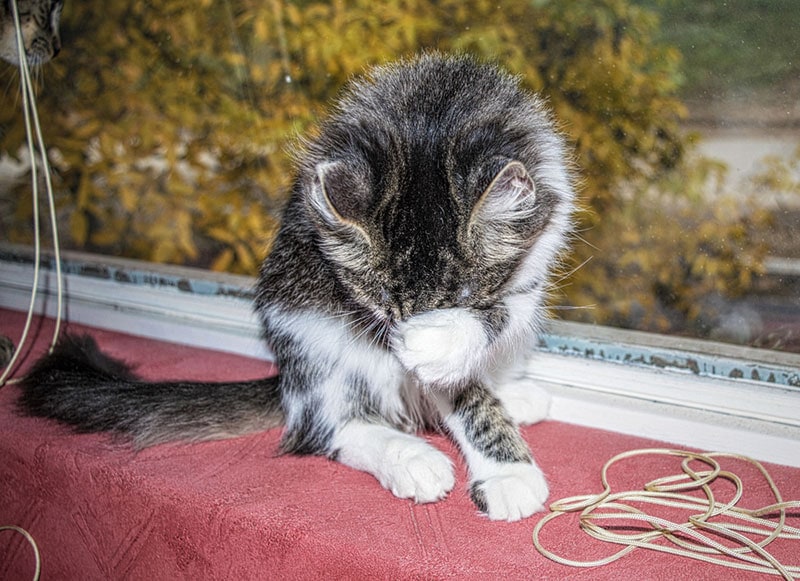
5. Intranasal Vaccine
Intranasal vaccines are administered in the nasal cavity, which can certainly tickle your cat’s nostrils. These vaccines are often given to prevent upper respiratory infections in cats.
The sneezing caused by an intranasal vaccine will usually subside within 24 hours. If your cat is still sneezing after 24 hours or you notice additional symptoms like facial swelling, call your veterinarian right away.
6. Nasal Blockage
Nasal blockages can trigger a cat to sneeze to dislodge the item. Common nasal blockages include:
- Plant material
- Bugs
- Litter
- Polyps (non-cancerous growths)
- Vomit/regurgitation
Your cat must see a veterinarian to remove the object if sneezing isn’t working. The veterinarian will assess the blockage and determine the best removal method.
If vomit or regurgitation is causing your cat to vomit, there could be an underlying medical issue, like megaesophagus or a hiatal hernia.
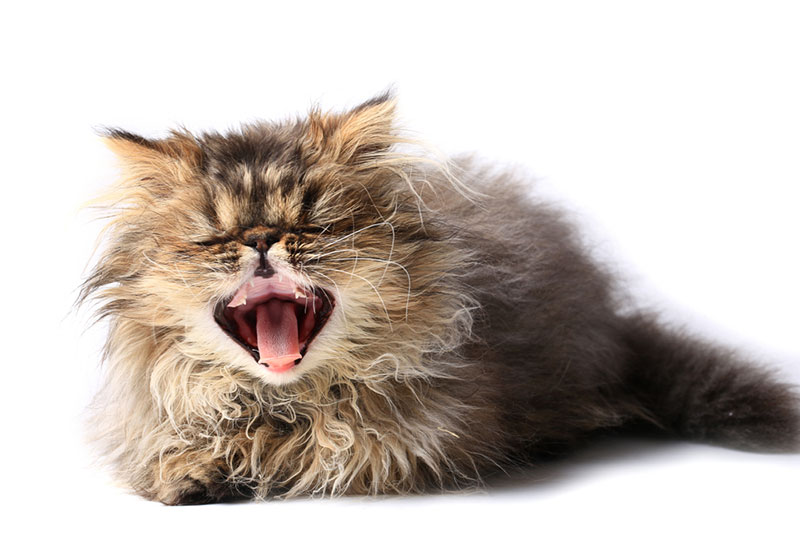
7. Excitement
We all have our quirks, right? Your cat could be an excited sneezer. With all that running around, the juices are flowing!
Unless your cat’s sneezing is causing an issue, you can leave them be.
8. Allergies
Cats can have allergies, like humans. Common cat allergies include mold, dust, perfumes, smoke, pollen, etc.—all the inhaled irritants you’d expect to cause a sneezy kitty. These can be one-time irritants but can cause recurring allergies in some cats.
Occasional sneezing isn’t a concern, but if the allergies go from mild to severe, you’ll need to visit the vet for a diagnosis and action plan.
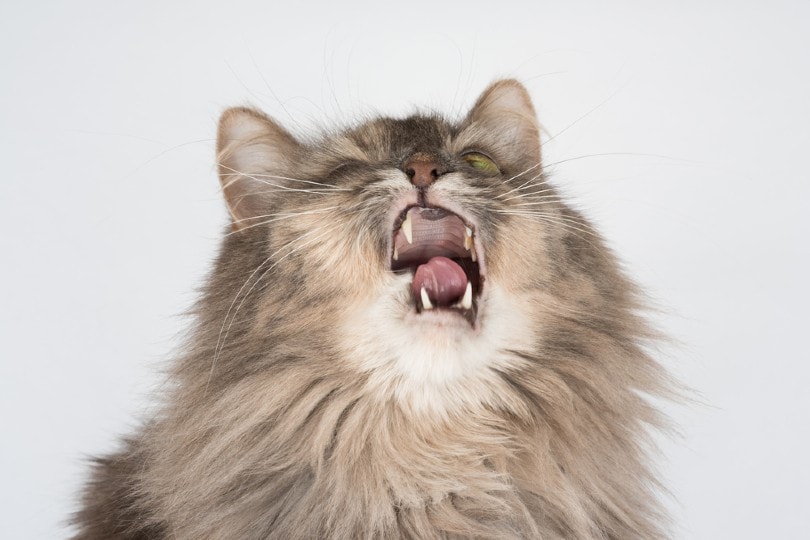
When Should I Visit the Vet?
If your cat can’t stop sneezing and you notice additional symptoms, it’s time to visit the vet. Frequent symptoms that can accompany sneezing are:
- Watery eyes
- Sniffling
- Coughing
- Fever
- Drooling
- Inappetence
- Weight loss
- Poor coat condition
- Diarrhea
- Difficulty breathing
- Lethargy
- Nasal discharge
Call your vet right away if you notice any of these signs.
Conclusion
After reading about the potential concerns with sneezing, it’s easy to worry that something might be wrong with your cat. But remember that sneezing is usually normal for kittens. It only becomes a problem when the sneezing doesn’t go away and you notice other health issues tagging along.
The important thing is to monitor your cat and make adjustments. Call your veterinarian for further instructions if you believe your cat has a serious medical issue.
See also:
- 12 Dogs With the Best Sense of Smell According to Science
- 11 Helpful DIY Porch Potties You Can Make Today (With Pictures)
Featured Image Credit: Elizabett, Shutterstock


